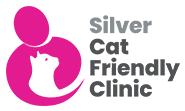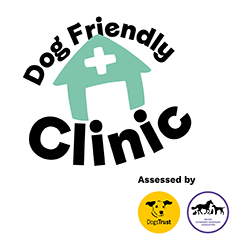What are the signs my pet might have cancer?
The signs of cancer can be very variable, as it depends which part of the body is affected. Any symptom that persists for a long time (such as a cough or diarrhoea) could be a sign of cancer and it is important to have these things checked by your vet. Skin cancers are particularly common in dogs and it is important to get any lump or bump that you notice checked by your vet. In general, the sooner cancer is found, the more we can do about it.
What should I do if I think my pet has cancer?
If you are worried that your pet has cancer, then you should talk to your vet as soon as possible. They may be able to put your mind at rest straight away, or they may advise some further tests (see below).
How is cancer diagnosed in pets?
The first step in the diagnosis of a cancer is to take some samples from it – cancer can only be diagnosed by a pathologist in a laboratory. Although we can be suspicious of cancer based on the physical appearance of a lump or based on an x-ray this cannot be a definite diagnosis. There are numerous ways that we can take samples and there are pros and cons of each method. The simplest method is using a fine needle aspirate to take a small sample – this method is non-invasive and usually does not require any sedation or anaesthetic. However, the sample size is very small and sometimes does not give us an answer. It also cannot grade a tumour, which is how we know how aggressive it is. The second option is to take a biopsy from the mass, either surgically or using a special type of core needle. Using these methods mean that we get more tissue so a more robust diagnosis. The down side is that they usual require sedation or anaesthesia as they are more invasive.
What types of cancer treatment might my pet have?
Every cancer is different, which means that every treatment plan needs to be individualised to the patient. The main types of treatment we have for cancer are surgery, radiotherapy, and chemotherapy. We may recommend one treatment by itself or a combination of treatments, depending on the type of cancer, the grade and the stage.
What can the side effects for cancer treatment be?
As we cannot explain to animals why their treatment is making them feel ill, we do everything that we can to minimise the side-effects of any treatment that we give your pet. We try and find the correct balance between treating the cancer and improving your animal’s outcome versus the side-effects that come with treating the disease.
The most common side effects we can see with every chemotherapy drug are stomach upsets and suppression of the immune system. The latter can make a patient more susceptible to infections although we always monitor the white blood cell count closely with blood tests to make sure this does not happen. We also have several medications that we can prescribe that can be used to make the patient feel better such as anti-nausea medication. One of the most worrying side effects in people is hair loss. However, hair loss is quite rare in dogs and cats
How long will my pet be in hospital for?
We realise that a diagnosis of cancer is a worrying time for you and that keeping your pet away from home is the last thing that any of us want. We endeavour to perform all of our investigations and treatments on an out-patient status.
If you pet is coming in for a scan, then they will be with us for most of the day. They should not be fed in the morning as they will likely require some form of sedation or anaesthesia. Pets that are visiting the hospital for chemotherapy are usually with us for 2-3 hours. Please check with the clinician whether withholding food is required as most patients do not require sedation for chemotherapy.
I’m worried about putting my pet through chemotherapy, is it as uncomfortable for them as it is for humans?
Chemotherapy literally means ‘treatment with drugs’ and there are many different forms that we can use. People often have very negative perceptions of chemotherapy due to experience from human medicine however one of our main aims in veterinary oncology is to maintain or improve our patient’s quality of life with treatment. We do not tend to use the same high doses of chemotherapy that are used in human oncology which means that we do not see the same severe side effects.







